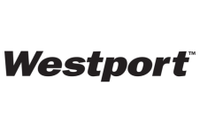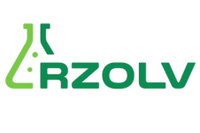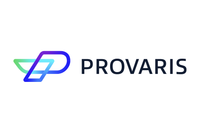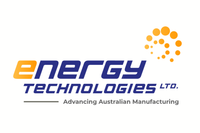10 Biggest EV Stocks to Watch in 2026
Tesla is far from the only major electric car company today. Here's a look at the top 10 EV stocks you can invest in, including US and Chinese EV stocks.
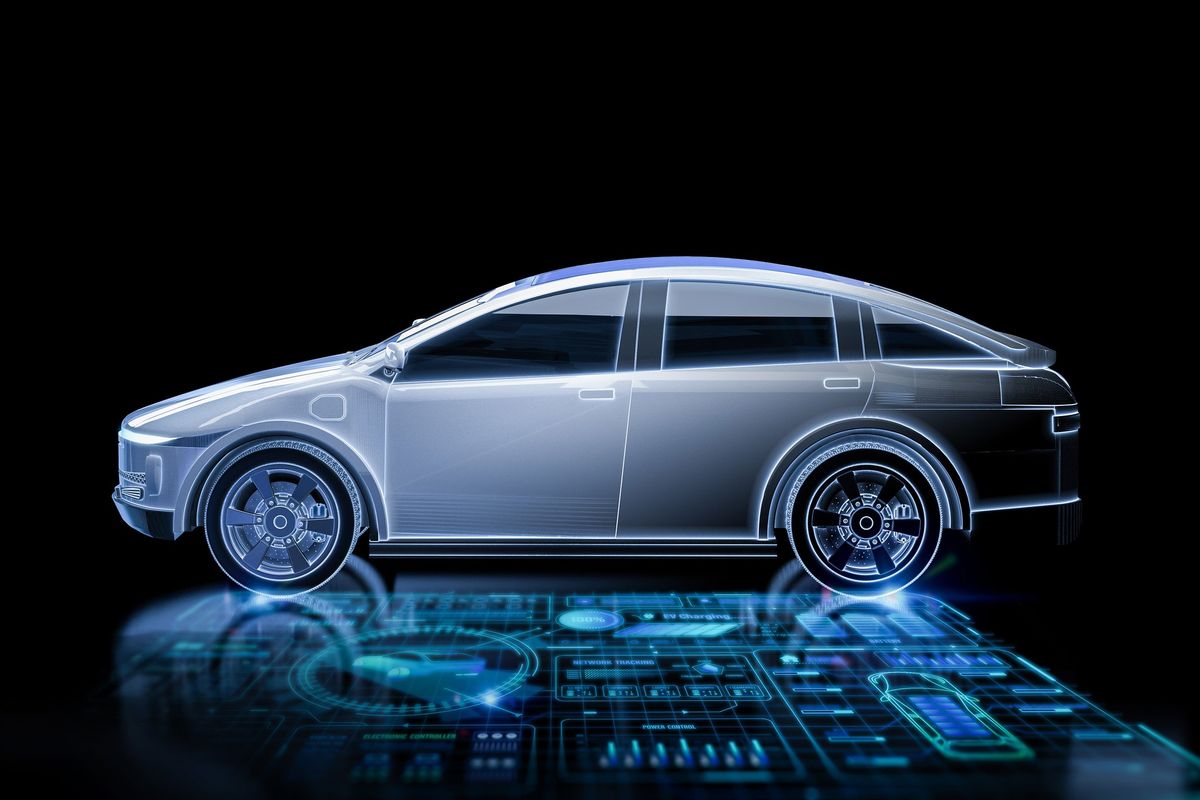
The energy revolution is here to stay, and electric vehicles (EVs) have become part of the mainstream narrative.
The shift toward green energy is gathering momentum, with governments adding more incentives to accelerate this transition. Increasing EV sales are good news for battery metals investors, as EVs are significant drivers for commodities such as lithium, cobalt and graphite, key components in the cathodes of EV batteries. Additionally, interest in EV options outside of Tesla is heating up, and Chinese EVs are increasing in popularity outside of the country.
For investors interested in getting exposure to the EV trend, the Investing News Network has gathered a list of the largest EV makers by market cap. This electric car stock list was generated using TradingView's stock screener on February 2, 2026, and it includes companies with an EV focus under the motor vehicles industry filter.
Read on to learn about the top US and Chinese EV stocks, and the batteries and battery suppliers they're using for their current and upcoming models.
1. Tesla (NASDAQ:TSLA)
Market cap: US$1.62 trillion
First on the list is EV maker Tesla, which has brought significant attention to the EV narrative.
The company's story starts in 2003, when it was founded by Martin Eberhard and Marc Tarpenning. Elon Musk invested in the company in 2004, becoming the largest shareholder, and eventually became its CEO in 2008. A well-known story for battery metals investors, the company made headlines in 2014 when it broke ground at its first gigafactory in Nevada, US, an unthinkable proposition at the time.
Outside of the US, Tesla also has gigafactories in China and Germany. Tesla’s massive Shanghai Gigafactory was the company’s first auto plant outside of the United States. The company produces Model 3s and Model Ys for China and global export.
Tesla uses a range of different lithium-ion batteries in its models. In partnership with Panasonic (TSE:6752), at its Nevada gigafactory Tesla produces batteries with nickel-cobalt-aluminum (NCA) cathodes — different from most of Tesla’s competitors, which use a nickel-cobalt-manganese (NCM) mix.
Tesla announced in 2021 that it was changing the battery chemistry for its standard-range vehicles to lithium-iron-phosphate (LFP) cathodes, which are cobalt- and nickel-free. China’s largest battery maker, CATL (SZSE:300750), is a key supplier of LFP batteries for Tesla, particularly for the Shanghai and Berlin gigafactories.
Changes in US tariffs on EVs made or sourced in China have impacted Tesla's business, leading the company to try diversifying its supply chain. Last year, South Korea's LG Energy Solution (KRX:373220) signed a US$4.3 billion deal to supply Tesla with LFP batteries from its factory in Michigan, US, starting in 2027.
On the other hand, Tesla's prime EV position got a boost in the first quarter of 2026 Canada announced it would allow imports of up to 49,000 Chinese-made EVs per year, and lowered tariffs on them from 100 to 6.1 percent. Half of that quota could apply to Tesla's EVs made in Shanghai, while the other half is dedicated to EVs priced under C$35,000.
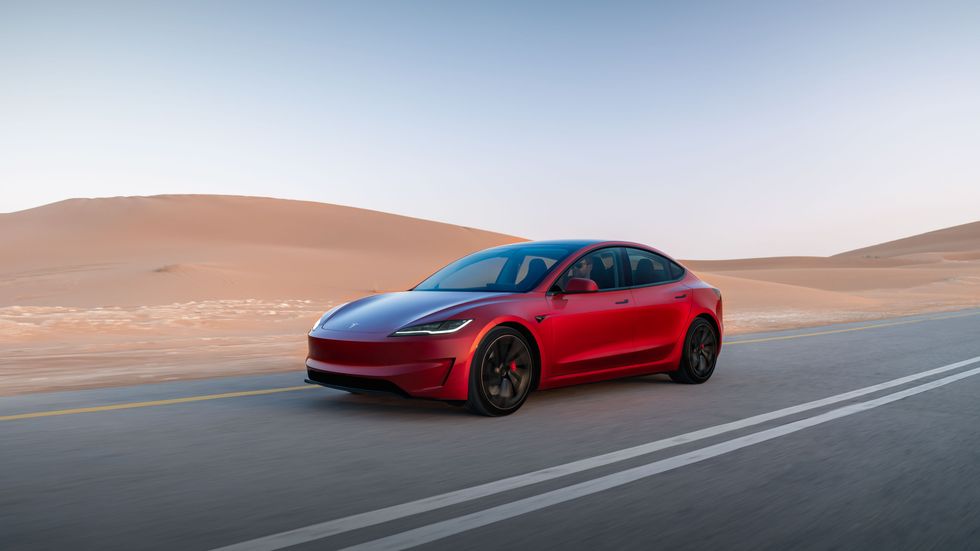
Image via Tesla.
2. BYD Company (OTCPK:BYDDY,HKEX:1211)
Market cap: US$116 billion
Leading Chinese EV maker BYD Company was founded in 1995 and is a top producer of several kinds of rechargeable batteries, including nickel-metal hydride batteries and NCM batteries. BYD has a vertically integrated supply chain, from mineral battery cells to battery packs.
Backed by Warren Buffett, in 2020 BYD officially launched its Blade battery, a less bulky LFP battery. The following year, the company announced that it would use the Blade LFP batteries for all of its pure electric models.
In April 2025, BYD released two new EV models, the Han L sedan and Tang L SUV, based on its new Super e-platform, which allows users to add 400 kilometers (248 miles) of range in five minutes of charging, and charge to 100 percent in 20 minutes.
BYD's range of models include low-cost options such as the Seagull and Dolphin. Because of this, the company stands to benefit from Canada's decision to allow imports and slash tariffs for up to 49,000 Chinese EVs per year, half of which must be under C$35,000.
For the first time, in 2025, BYD overtook Tesla as the world's biggest EV seller in terms of annual sales. BYD sold 2.25 million units for the year, up 28 percent over 2024, compared to the 1.64 million units sold by Tesla in 2025, down 9 percent from the previous year.
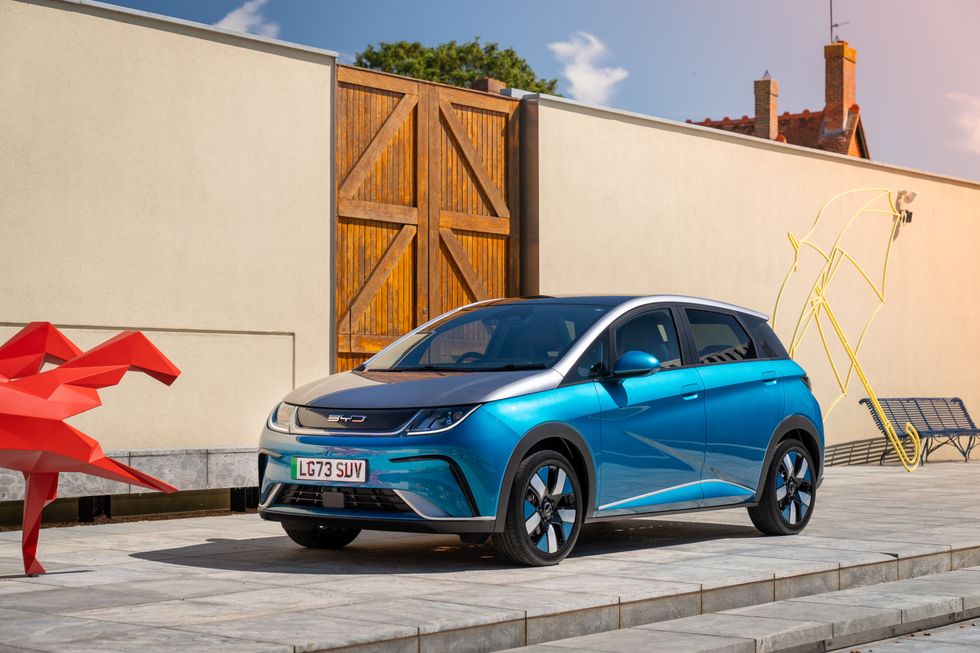
Image via BYD.
3. Rivian Automotive (NASDAQ:RIVN)
Market cap: US$18.08 billion
Founded in 2009 in Florida, US, Rivian designs, develops and manufactures EVs and accessories and sells them directly to customers in the consumer and commercial markets.
The US company is based in Irvine, California, and manufactures its vehicles in Illinois.
The carmaker announced plans to use cells made with LFP chemistries for its standard-level vehicles in 2022, and in 2023 announced plans to switch its entire lineup to this type of battery. South Korea’s Samsung SDI (KRX:006400) and LG Energy Solutions are Rivian’s current battery suppliers.
Last year, the company revealed e-scooters to market through its spinoff electric micromobility company named Also. The scooters are expected to hit the market in mid-2026. It has plans to launch a three-wheel EV line as well.
In early January 2026, Rivian reached a major milestone toward full-scale production of its new R2 with the manufacturing of validation builds at its plant in Illinois. This latest reiteration will be priced starting at US$45,000, with first deliveries slated for the first half of this year. Rivian sold 42,247 EVs in 2025.
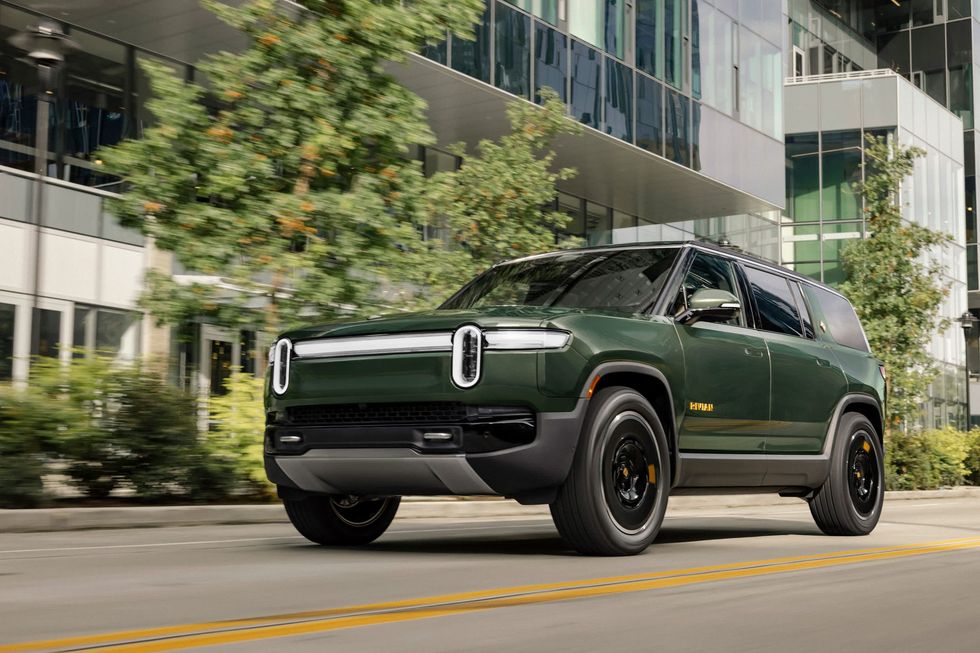
Image via Rivian.
4. XPeng (NYSE:XPEV)
Market cap: US$17.49 billion
Xpeng is a Chinese EV maker focused on smart EVs. The company's main manufacturing plant is located in Guangdong province.
Xpeng now uses LFP batteries for 99 percent of its EV lineup. CALB (HKEX:3931) is Xpeng's largest battery supplier, and its other suppliers include CATL, BYD, Sunwoda Electronic (SZSE:300207) and EVE Energy (SZSE:300014).
Last year, the company showcased its 2025 XPENG X9 flagship vehicle, with self-driving capabilities powered by Xpeng's self-developed Turing AI chip. At the same time, Xpeng unveiled its AEROHT Land Aircraft Carrier, slated for mass production in 2026. The company bills it as "the world’s first modular flying car."
XPeng’s 2025 EV sales reached 429,445 units. The company has ambitious goals for 2026, aiming to sell between 550,000 and 600,000 EVs during the year. XPeng is launching four new SUV models this year: the XPeng G01 and XPeng G02, as well as two models from the Mona series, the D02 and D03.
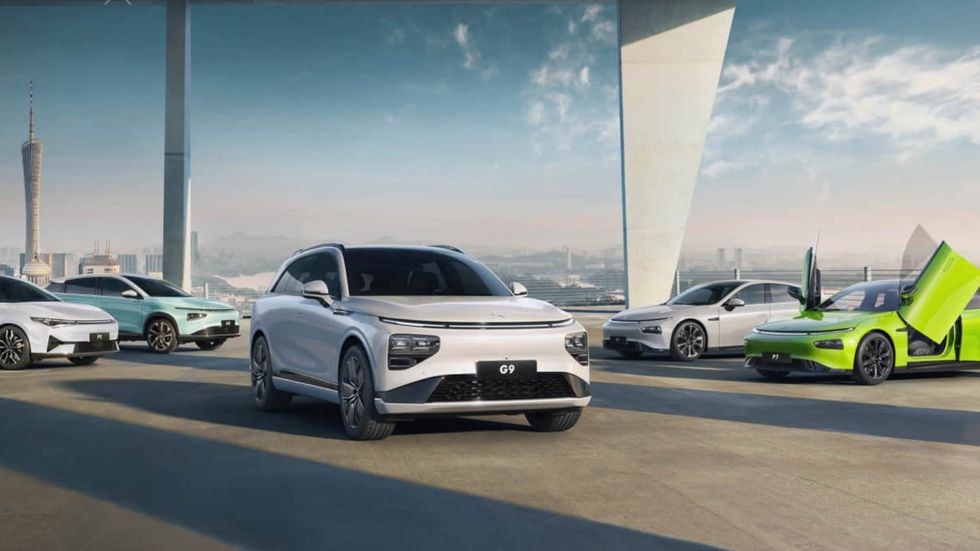
Image via Xpeng.
5. Li Auto (NASDAQ:LI)
Market cap: US$17.03 billion
Li Auto bills itself as a pioneer in successfully commercializing extended-range EVs in China, and is a leader in China's full-size and large SUV markets. The company started volume production of its first model, Li ONE, in November 2019, and launched its initial public offering in July 2020, raising US$1.1 billion.
Li Auto has battery supply agreements with CATL, Sunwoda Electronic and SVOLT Energy Technology.
One of the main differences between Li Auto and the other companies on this list is that Li Auto's models allow battery pack charging with electricity or gas. The company calls this design extended-range EV technology.
Li Auto launched its first all-electric car, Li MEGA MPV, in 2024. In 2025, the company followed that with its second all-electric vehicle, the i8 SUV, which uses an NMC battery and maxes out at 536 horsepower. Li Auto also broadened its markets last year, launching three core models (Li L9, Li L7 and Li L6) in Egypt, Kazakhstan and Azerbaijan.
Li Auto achieved a significant milestone in 2025, with annual sales surpassing 1.5 million units. This made it “the first among China's new EV startups to reach that mark,” according to the company’s Chairman and CEO Li Xiang.
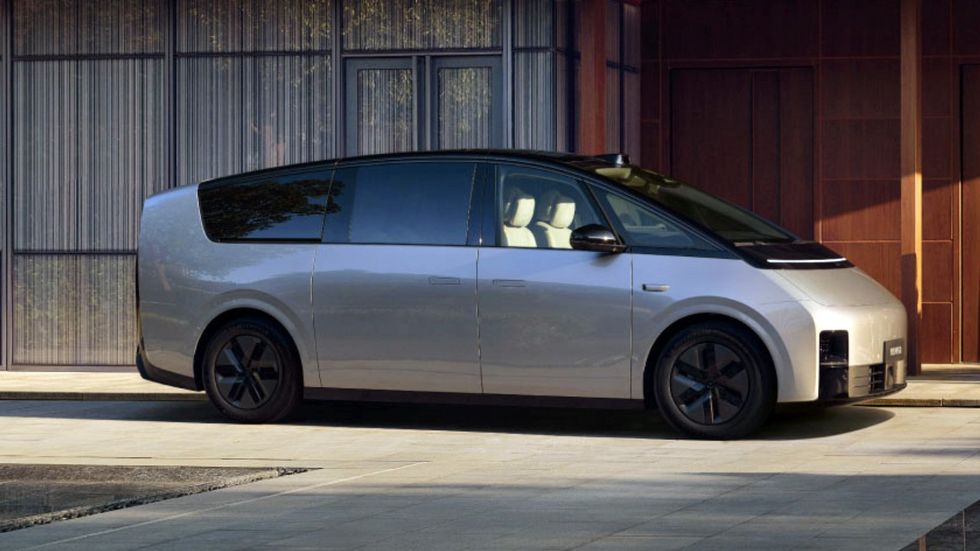
Image via Li Auto.
6. NIO (NYSE:NIO)
Market cap: US$10.36 billion
Founded in 2014, Chinese EV maker NIO designs, jointly manufactures and sells smart and connected premium EVs.
NIO's strategy includes its battery-as-a-service endeavor, a subscription purchasing model where buyers lease vehicle batteries. The company says the idea behind this move is to reduce vehicle costs. The service is run by a battery asset company, with NIO and leading battery maker CATL owning a stake. CATL is already NIO's sole battery supplier.
The company has built battery swap stations that allow drivers with low batteries to pull up and have it swapped for a full battery within minutes. Its fifth generation swap stations are expected to roll out starting in 2026.
In September 2021, the company introduced a standard-range hybrid-cell battery that combines NCM and LFP cells. NIO is also offering the world’s longest-range semi-solid-state battery on a rental basis through its partnership with Beijing WeLion New Energy Technology.
In 2024, NIO launched its newest EV brand, Firefly, in China. The first model in this brand is a small car for city dwellers who struggle with finding convenient parking, as it can locate available spots and use parking assist to maneuver into them. Drivers are also be able to access the above-mentioned battery swap program.
NIO reported 2025 vehicle sales of 326,028 units, an increase of 46.9 percent year-over-year. Launched in September 2025, its flagship ES8 SUV became the fastest-selling EV in China in its price category by the end of the year. The company plans to bring three new large SUV models to the market in 2026, and expand into Australia and New Zealand in the second half of the year.
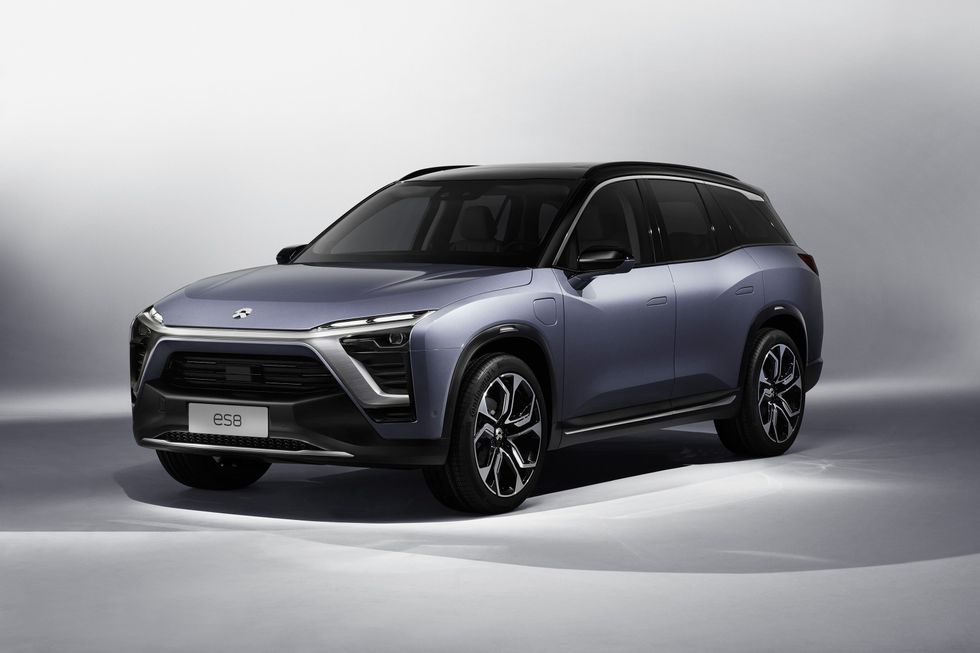
Image via Nio Newsroom.
7. VinFast Auto (NASDAQ:VFS)
Market cap: US$7.72 billion
VinFast Auto, Vietnam's first global automotive manufacturer, is a multinational EV manufacturer producing both affordable and luxury EVs. The company's lineup also includes an electric pickup truck known as the VF Wild.
VinFast has showrooms and service centers in North America, including in 14 US states and the Canadian provinces of Ontario, British Columbia and Québec.
Vietnam is the EV maker's largest market, and it significantly expanded its footprint in Asia in 2025, adding numerous showrooms in the Philippines, Indonesia and India. Last year, the company brought a new manufacturing facility online in India and opened its first Indonesian assembly plant in December. It is scheduled to scale up production and launch new models, including electric two-wheelers, in 2026.
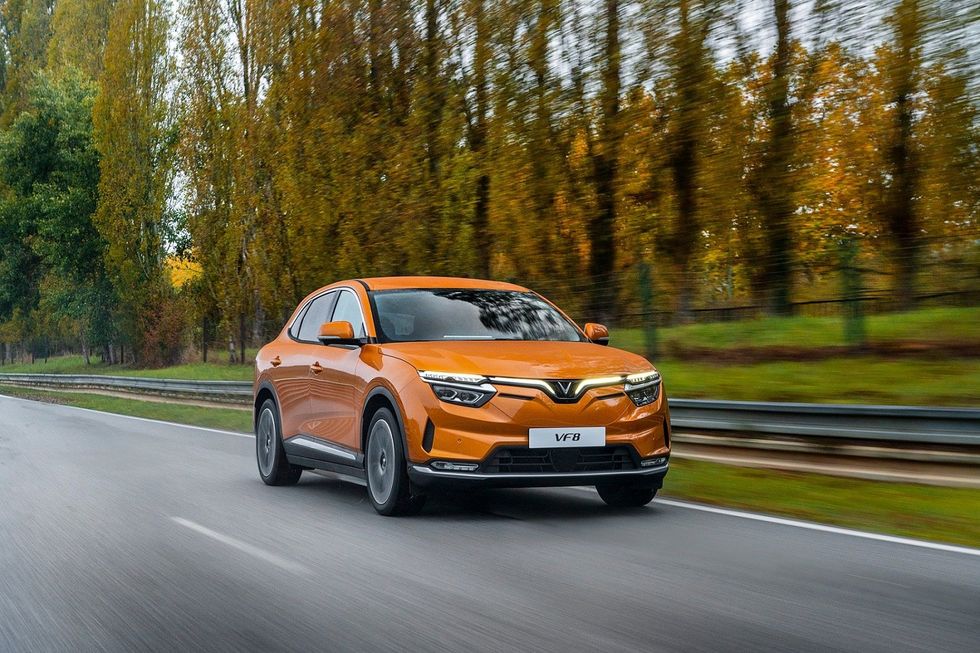
Image via VinFast.
8. Zhejiang Leapmotor Technology (OTC Pink:ZJLMF,HKEX:9863)
Market cap: US$7.58 billion
The Leapmotor brand first launched in China in 2017. The EV manufacturer designs and supplies its own battery packs for its vehicles.
Major auto maker Stellantis (NYSE:STLA) became a 20 percent shareholder in late 2023. The following year, the two entities formed the 51/49 joint venture company Leapmotor International, in which Stellantis holds the controlling interest. The joint venture is focused on selling and manufacturing Leapmotor vehicles outside of China.
The company’s current models in the market include seven seater SUV C16, mid-size crossover SUV C10, smart electric SUV C11, smart-tech C11 SUV, compact SUV B10, the new B01 sedan and T03 city EV.
Leapmotor unveiled its B01 electric sedan in April 2025. The vehicle is powered by LFP batteries from Gotion High-tech, CALB and Zenergy.
At the 2026 Brussels Motor Show, Leapmotor showcased the three EVs it has launched in Europe since expanding into the market: the B03X compact electric SUV, the B05 hatchback and the B10 range-extended electric vehicle.
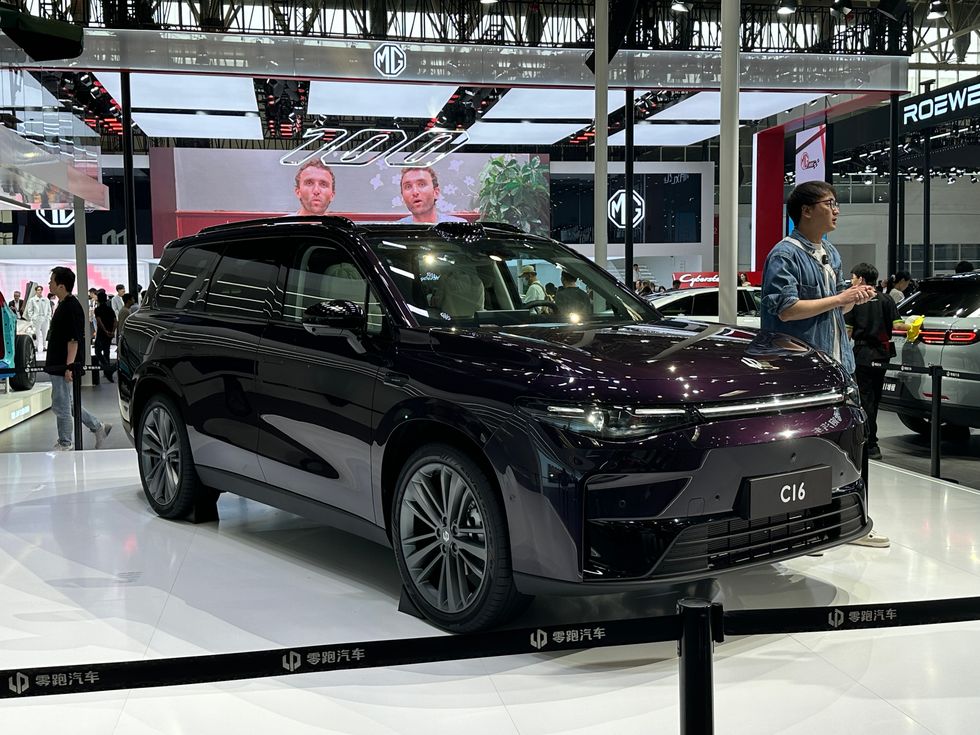
Image via Wikimedia Commons.
9. Lucid Group (NASDAQ:LCID)
Market cap: US$3.59 billion
Headquartered in California, Lucid Group was founded in 2007 and produces luxury electric cars. The company's first car, Lucid Air, is a state-of-the-art luxury sedan that is being produced at its US factory in Casa Grande, Arizona.
In April 2025, Lucid announced the acquisition of select Arizona-based facilities and assets of battery and fuel-cell EV company Nikola Corporation.
Lucid Motors uses high-performance Panasonic battery cells for its long-range electric vehicles. These cells are currently manufactured in Japan, but the company is transitioning to using batteries from Panasonic’s new facility in Kansas by mid-2026 to avoid Trump's import tariffs.
Lucid plans to launch a full-scale manufacturing facility in Saudi Arabia in 2026, with an annual capacity of 150,000 vehicles by 2029.
The company's Gravity SUV was named Esquire’s 2026 Car of the Year.
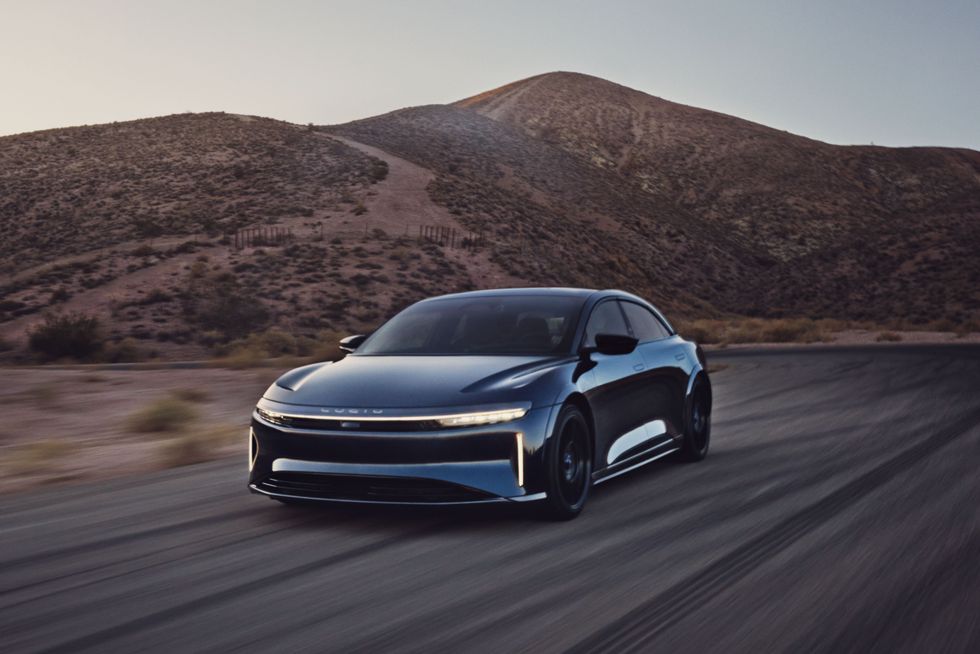
Image via Lucid.
10. Polestar Automotive (NASDAQ:PSNY)
Market cap: US$1.41 billion
Sweden-based electric performance car brand Polestar is owned by Geely Automobile Holdings (OTC Pink:GELYF,HKEX:80175). Up until early 2024, Volvo Cars was also a part owner, but it decided to hand Polestar entirely over to Geely to operate as an independent brand, attributing the move to slowing global demand for EVs.
Polestar's current lineup includes the five door liftback Polestar 2, the luxury performance Polestar 3 SUV, the Polestar 4 compact coupe SUV and the Polestar 5 performance sedan, the last of which was released in 2025. The company is also planning the Polestar 7 compact SUV and the Polestar 6 roadster.
Polestar has experienced some difficulties in the last couple years, including software challenges in 2023 that caused delays in the rollout of the Polestar 3. In 2024, the company recorded a 15 percent drop in deliveries.
The EV maker's bad luck seems to be turning around in 2025. Polestar sold a record 60,119 vehicles during the year, a 34 percent improvement over 2024.
This is in part thanks to Polestar's efforts to capitalize on Tesla's struggles with Musk and its brand image. In February 2025, Polestar began offering Tesla owners in the US and Canada discounts of up to $20,000 on new leases of its models. Its Q1 2025 sales jumped 76 percent year over year.
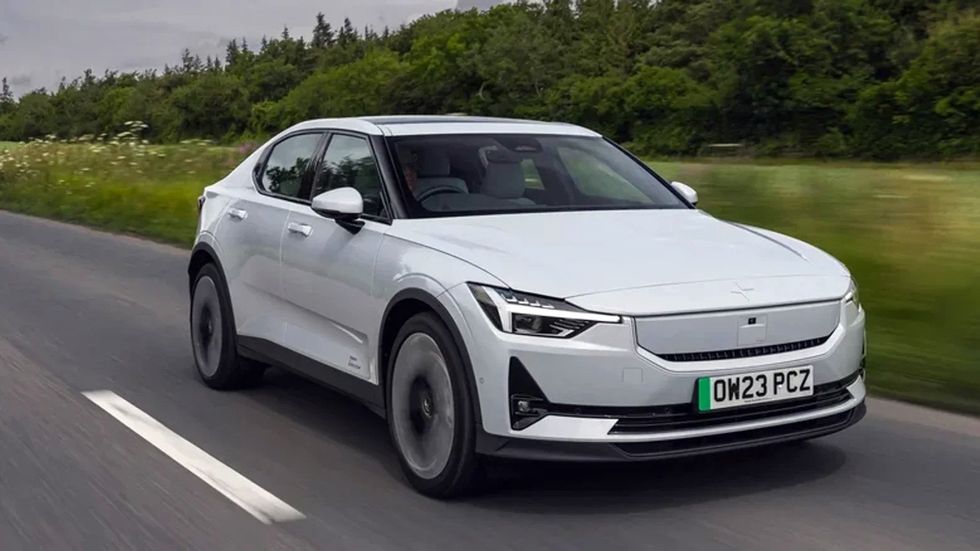
Image via SlashGear.
This is an updated version of an article first published by the Investing News Network in 2020.
Don’t forget to follow us @INN_Resource for real-time updates!
Securities Disclosure: I, Melissa Pistilli, hold no direct investment interest in any company mentioned in this article.
- EV Market Forecast: Top Trends for EVs in 2026 ›
- Where Does Tesla Get its Lithium? ›
- Is Trump a Threat to US Electric Vehicle and Battery Supply Chain Growth? ›
- Will Sodium-ion Batteries Disrupt the EV Market? ›
- Which Lithium Juniors Have Supply Deals With EV Makers? ›

